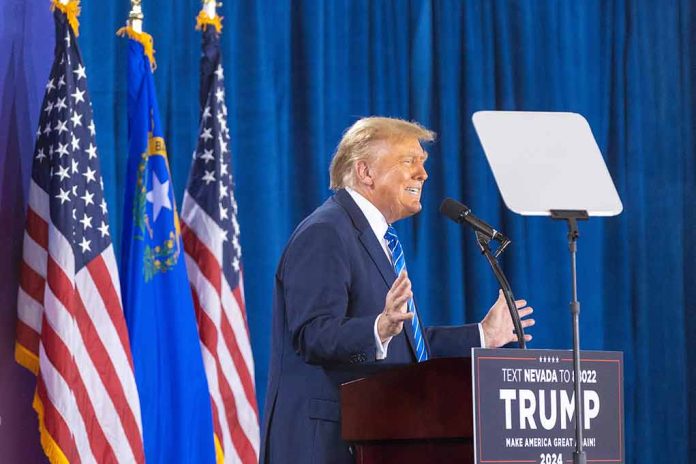
Former DHS Secretary Jeh Johnson’s warning about mass deportation backfiring ignores the urgent need to secure our borders and protect American citizens.
At a Glance
- Johnson claims mass deportation could strengthen sanctuary cities
- Trump plans largest criminal deportation operation in U.S. history
- Sanctuary cities limit cooperation with federal immigration enforcement
- Critics argue ICE detainers may violate constitutional rights
- Debate continues over balancing public safety and immigration enforcement
Johnson’s Misguided Concerns
Former Homeland Security Secretary Jeh Johnson’s recent comments on CNN Newsroom reveal a concerning disconnect from the realities of our immigration crisis. Johnson, who served under the Obama administration, suggests that mass deportation efforts could inadvertently empower sanctuary cities and compromise public safety. This perspective, however, fails to address the immediate threats posed by unchecked illegal immigration and the strain it places on American resources and communities.
Johnson’s argument for prioritizing only “serious offenders” ignores the fact that entering the country illegally is, in itself, a violation of our laws. It sends a dangerous message that some laws can be selectively enforced, undermining the very fabric of our legal system. Furthermore, this approach neglects the potential risks posed by individuals who have not yet committed additional crimes but may do so in the future.
Trump’s Bold Vision for Immigration Reform
In stark contrast to Johnson’s tepid approach, former President Donald Trump has outlined a comprehensive plan to address the immigration crisis head-on. Trump’s strategy includes ending DACA, invoking Title 42, and launching what his team describes as “the largest criminal deportation operation of illegal immigrants” in U.S. history. This decisive action aims to restore the rule of law and prioritize the safety and interests of American citizens.
“On Day One back in the White House, President Trump will begin the largest criminal deportation operation of illegal immigrants and restore the rule of law,” stated Trump’s spokesperson, underscoring the urgency and commitment to addressing this critical issue.
Trump’s plan also involves expanding the 287(g) program, which would deputize state and local law enforcement as immigration officers. This approach recognizes the vital role that local authorities play in maintaining community safety and leverages their expertise to enhance immigration enforcement efforts.
The Sanctuary City Dilemma
Sanctuary cities, which limit their cooperation with federal immigration authorities, have become a contentious issue in the national debate on immigration policy. While proponents argue that these policies foster trust between immigrant communities and local law enforcement, critics rightly point out that they can shield dangerous criminals and undermine federal law.
“Enforcing the immigration laws in this country is not a voluntary or trivial matter. Real lives are at stake,” Senator Chuck Grassley astutely observed, highlighting the serious consequences of failing to address illegal immigration.
The federal government’s efforts to compel cooperation from sanctuary jurisdictions have faced legal challenges, with courts ruling that immigration detainers are voluntary, not mandatory. This legal landscape underscores the need for comprehensive legislative reform to ensure consistent and effective immigration enforcement across the country.
Prioritizing American Safety and Security
While Johnson expresses concern about the potential impact of mass deportation on families with U.S. citizen children, it’s crucial to remember that the primary responsibility of our government is to protect and prioritize the well-being of American citizens. The strain on public resources, potential security risks, and erosion of the rule of law caused by unchecked illegal immigration cannot be ignored in favor of misplaced compassion.
“We are removing the constitutional objection that we’re detaining people, or asking them to hold people, without a basis. Now we’re saying, ‘Don’t hold them 48 hours in a typical situation. Just give us notice 48 hours before the release of an individual,'” Sarah Saldana explained, outlining efforts to address legal concerns while maintaining effective enforcement.
As the debate over immigration policy continues, it’s clear that bold, decisive action is needed to address the crisis at our borders and within our communities. While critics like Johnson may advocate for a more limited approach, the safety and sovereignty of our nation demand a comprehensive strategy that prioritizes American interests and upholds the rule of law. Trump’s proposed policies offer a path forward that addresses these critical concerns head-on, promising to restore order and security to our immigration system.






















